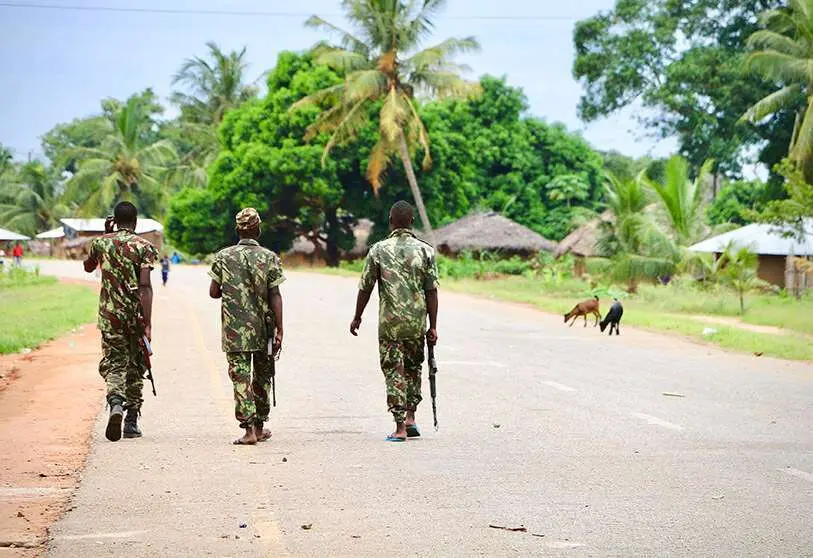Jihadist attack in Mozambique costs 20 lives

The massacre took place earlier this week in the northern region of Cabo Delgado. Mozambican police on Monday found the mutilated bodies of at least five adults and 15 teenagers scattered in a forest in Muidumbe district.
"The police were alerted by local residents who found the bodies in the forest," said an official from the neighbouring Mueda district as reported in Le Figaro. "They were young people who had come to participate in an initiation ceremony, surrounded by their elders," the official said, asking for their anonymity.
The area is a target for jihadists operating in the region. They have attacked, looted and set fire to several villages in the regions of Muidumbe de Magaia, Nchinga, Namacunde, Março, Muatide and Muambula.
At least five adults and 15 adolescents were beheaded by alleged Jihadists. The attack took place while the victims were taking part in an initiation ceremony. So far no official statement has been made by the authorities, but some observers say they are surprised by this attack attributed to the Islamist insurgents affiliated with the Central African Province of the Islamic State (ISCAP).

The region of Cabo Delgado is predominantly Muslim, but in the area of Makonde, where the massacre took place, the population is predominantly Christian.
This hydrocarbon-rich province, located on the border with Tanzania, is where they have been operating for the past three years. The Islamist insurgents operating in the area have already attacked, looted and burned several villages in the area.
They have been active in the Cabo Delgado region for the past three years, attacking towns and villages with the aim of spreading terror and establishing a caliphate. According to the US NGO Armed Conflict Location & Event Data group, these Jihadists have caused at least 2,000 deaths and the displacement of over 400,000 people since 2017.
It would therefore be an act to kill, terrorise and not to recruit as has already occurred. At the beginning of April, for example, fifty-two young people from the same province were shot or beheaded. They had refused to join the ranks of the Islamists.
Other villages have been assaulted, looted and burned since the arrival of these Jihadists in 2017. The attackers abducted an undetermined number of children in the Nchinga area. The raids are also intended to forcibly recruit young people from the villages to join the Jihadist ranks.

The attacks in the villages of Muidumbe, as reported by the RFI media, could be a reprisal for the offensive of the defence and security forces at the beginning of last week against the main terrorist base, a complex of camps known as the "Syrian Base" in the district of Mocimboa da Praia.
More than 400,000 people have fled the Cabo Delgado province in northern Mozambique, according to government estimates last week. Having fled ongoing attacks by armed groups and military action by Mozambican forces, the displaced now face serious health risks. Jihadist violence in Cabo Delgado province has also jeopardised crops, forcing thousands of farmers to flee due to terrorist attacks, according to Médecins Sans Frontières.
The fighting, which began in October 2017, has continued to escalate, forcing nearly a fifth of the province's population to flee and destroying access to health care and other public services. MSF had to suspend its medical activities in Mocimboa da Praia in March 2020 and again in May in Macomia after an insurgent attack in which the health centre where MSF was working was looted and burned. It is estimated that more than 20 local health centres were destroyed in the conflict.








